Search this site
Articles by Alisha Adams
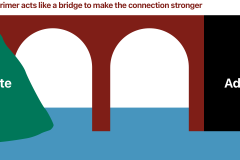 Do Appli-Tec Adhesives Need a Primer?
Do Appli-Tec Adhesives Need a Primer?
A primer bonds to the substrate and the adhesive — becoming a bridging layer.
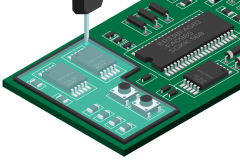 Appli-Thane 7800 & 7810 Ideal for Dam and Fill Applications
Appli-Thane 7800 & 7810 Ideal for Dam and Fill Applications
To encapsulate a small section or component of a circuit board, a process called “dam and fill” can be used.
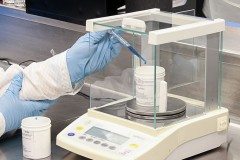 FAQ: “I Have a Difficult Adhesive Mix Ratio. Can Appli-Tec Help?”
FAQ: “I Have a Difficult Adhesive Mix Ratio. Can Appli-Tec Help?”
The impact of mix ratio on adhesive performance is critical and impacts everything from cure rate to outgassing properties.
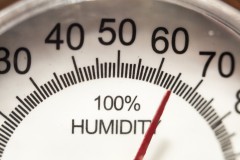 How Temperature and Humidity Affect Your Adhesive Mix
How Temperature and Humidity Affect Your Adhesive Mix
Temperature and humidity greatly affect viscosity, pot life, adhesive performance, and cured properties.
 Room Temperature Cure vs. Oven Cure for Adhesives
Room Temperature Cure vs. Oven Cure for Adhesives
The type of adhesive cure to use depends on your application, what you’re trying to achieve, and your time frame.
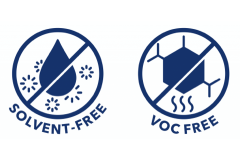 FAQ: “Are Appli-Tec Adhesives Solvent-Free?”
FAQ: “Are Appli-Tec Adhesives Solvent-Free?”
95% of our product line is solvent-free – meaning the materials aren’t flammable or have very low VOC emission.
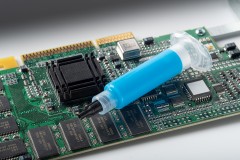 Tech Tip: Bonding Small Electronics to Printed Circuit Boards
Tech Tip: Bonding Small Electronics to Printed Circuit Boards
Learn why bonding components to PCBs is different than metal-to-metal bonding (e.g. aluminum to aluminum).
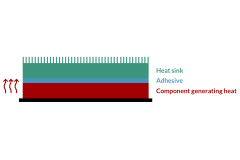 Three Benefits of Thermally Conductive Adhesives for High Reliability Heat Sink Applications
Three Benefits of Thermally Conductive Adhesives for High Reliability Heat Sink Applications
Appli-Tec thermally conductive adhesives eliminate the three challenges associated with thermal grease and pads for heat sink applications.
 Bonding – Staking – Potting – Encapsulation:
Bonding – Staking – Potting – Encapsulation: Choosing the Right Adhesive for Your Application
The key difference between potting and encapsulation explained.
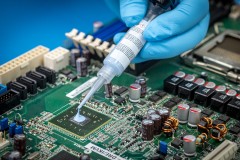 Choosing Thermally Conductive Adhesives for Heat Sink Applications
Choosing Thermally Conductive Adhesives for Heat Sink Applications
Solve challenges with heat sink applications that thermal conductive pads can’t handle.
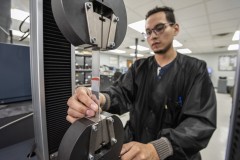 What’s Appli-Tec’s procedure for testing lap shear?
What’s Appli-Tec’s procedure for testing lap shear?
Testing an adhesive’s lap shear is important because it allows for a strength comparison between different adhesive materials on a known substrate.
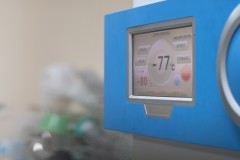 Shelf Life Considerations FAQ
Shelf Life Considerations FAQ
My Adhesive Material Seems Thicker Than Normal. What’s the Problem?

